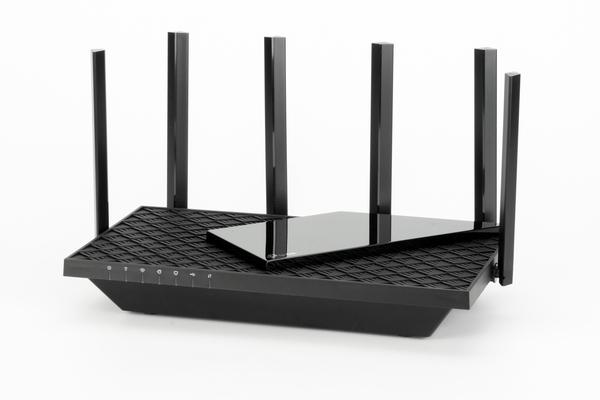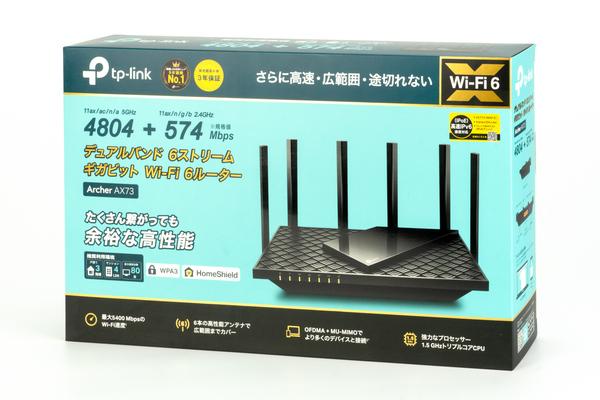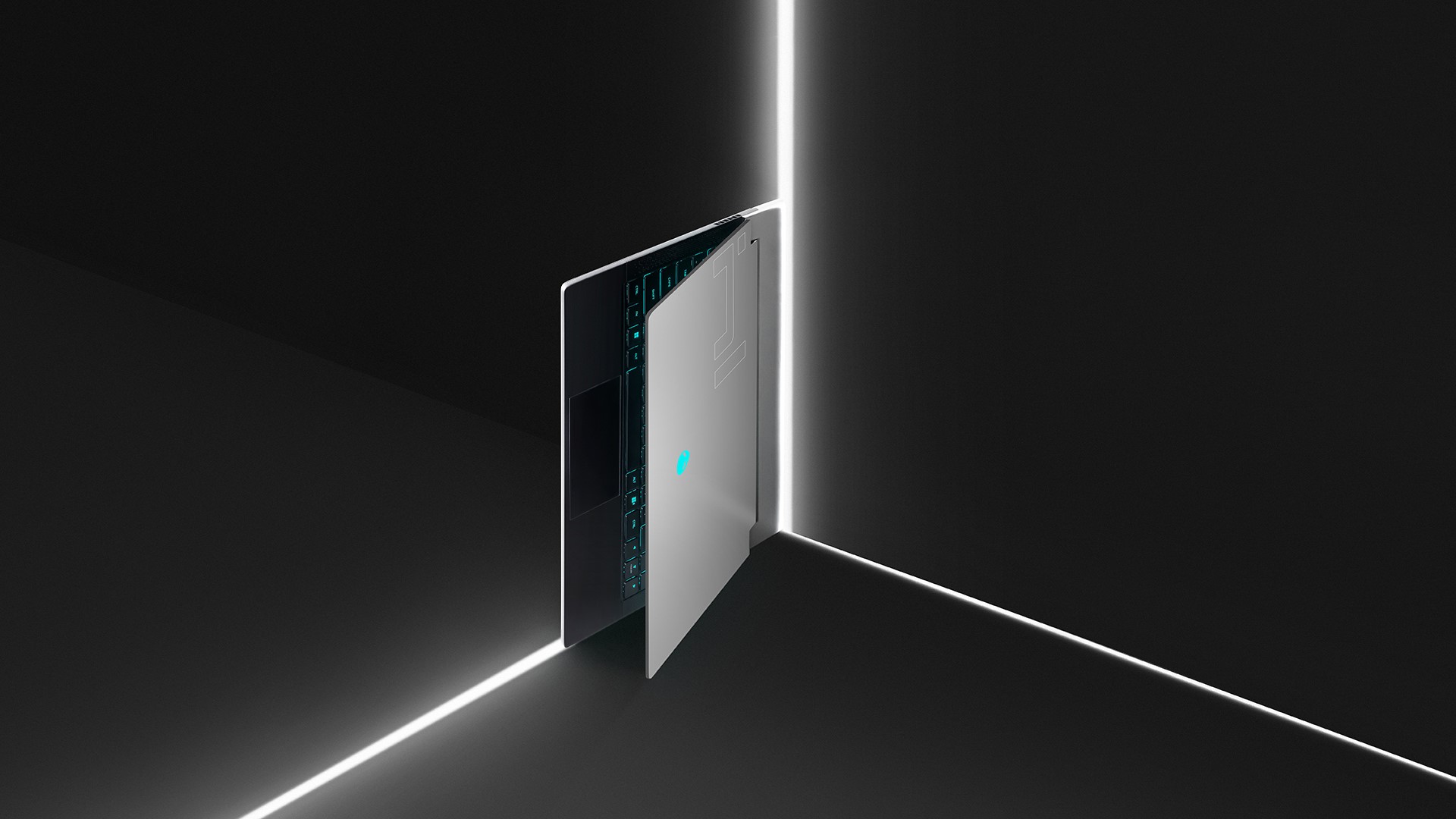The Wi-Fi 6 (IEEE 802.11ax) standard, which began to be certified in 2019, has been released one after another with compatible routers and products since last year, and the transition to next-generation Wi-Fi has finally begun in earnest. Meanwhile, TP-Link, which handles network equipment, has released the high-cost Wi-Fi 6 compatible router "Archer AX73".
This product has a dual band of 4804 Mbps (5GHz band) + 574 Mbps (2.4GHz band) and a powerful but super-affordable setting of 13,600 yen. Since I was able to borrow the product, I immediately tried to verify its ability.
TP-Link "Archer AX73" package
Six antennas stand up and the design is new
The appearance of the "Archer AX73" is a flat-mounted body with a high-end class beam antenna.
First of all, from the appearance. The design with six antennas standing upright and a ventilation hole like a scaly chainmail spread on the top plate is quite novel for a Wi-Fi router. The 6 antennas installed in the middle high class are divided into 4 for the 5GHz band and 2 for the 2.4GHz band, and the angle can be changed so that it can be optimized according to the installation location. There is. In addition, the ventilation hole is not only a mere design, but also has an effect of reducing the deterioration of performance due to heat by improving the air permeability due to the exhaust heat.
Ventilation hole is designed to be highly breathable due to waste heat

There are 4 gigabit WAN ports and 4 LAN ports on the back, two of which support static link aggregation. By connecting to a compatible NAS, etc., the access speed will be improved and the load due to simultaneous access will be reduced. It also has a USB 3.0 port on the side, so if you connect an HDD etc., it can also be a simple NAS.
On the back, it has a WAN port and 4 LAN ports, and two support static link aggregation.
It has a USB 3.0 port on the right side, so you can use it like a simple NAS.
All LED lamps are on the front
The size is 272.5 (W) x 147.2 (D) x 49.2 (H) mm. There is also a hook hole on the bottom for hanging on the wall, so you can hang it on the wall. Since it does not affect the movable range of the antenna, it can be used according to the place where you want to install it.
Supports IPv6 IPoE and makes the best use of optical lines
The major point of this product is that it is the first TP-Link Wi-Fi 6 compatible product to support the IPv6 IPoE method. IPoE stands for "IP over Ethernet" and is a method of transmitting IP packets using Ethernet in the same way as LAN, without requiring user authentication. With the conventional PPPoE (Point-to-Point Protocol over Ethernet) method that encapsulates PPP frames, not only overhead is incurred, but traffic tends to be concentrated and congested, but with IPoE connection, it can be improved. You will be able to access it faster.
The network will also be an IPv6 network, and conventional IPv4 communication can be accessed by IPv4 over IPv6, which includes IPv4 packets in IPv6 packets. It can be used by compatible providers that use optical communication networks such as FLET'S Hikari Next.
Regarding Wi-Fi 6 functions, it supports 4x4 MU-MIMO and also supports OFDM technology that communicates with multiple Wi-Fi compatible devices at the same time. Even if you connect to multiple devices at the same time, high-speed communication is possible. In addition, even for high-load communication such as 4K and VR video, comfortable viewing is realized by supporting 1024-QAM technology, HT160 with twice the bandwidth, and 6-stream simultaneous communication.
It also supports beamforming, and it is possible to estimate the position and increase the signal strength even with non-compatible devices. Even one unit of this product is capable of high-speed communication over a wide range.
CPU adopts 3 cores of 1.5GHz. The maximum number of connected units is 80, which is comparable to the high-spec model, but it is a product with a high cost performance of 10,000 yen.




















